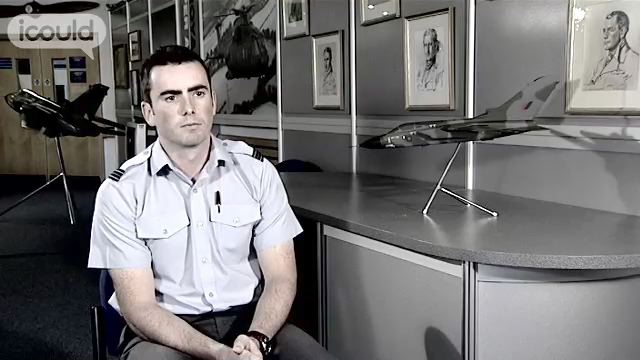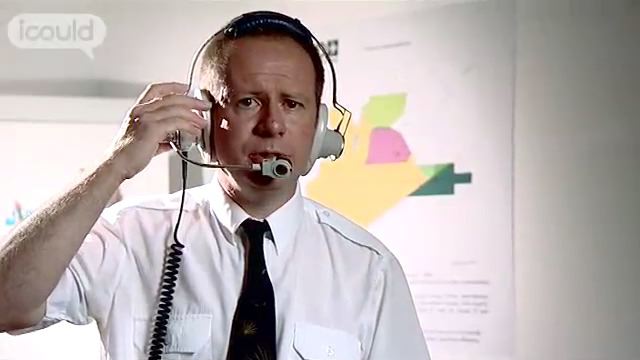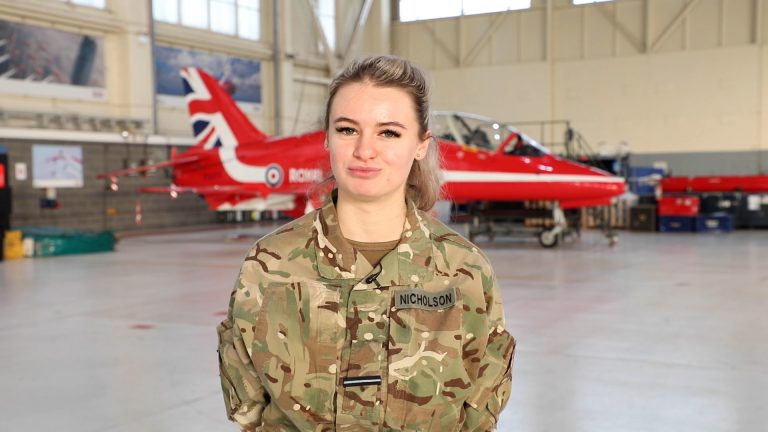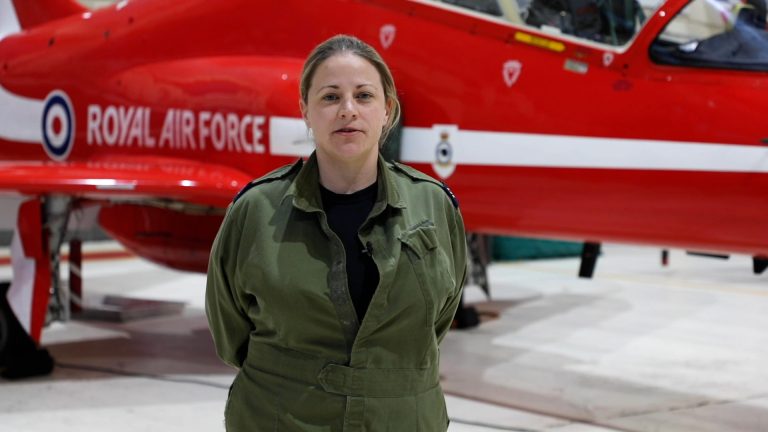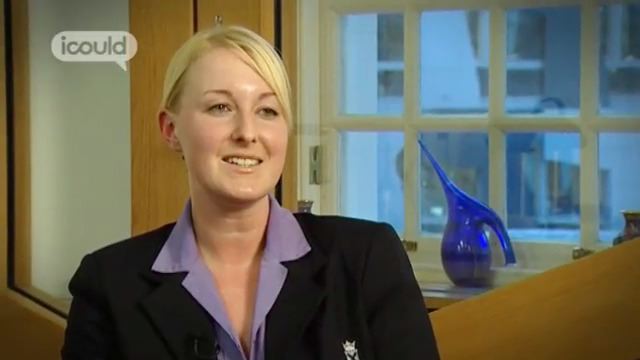Air Traffic Control Officer
RAF Cranwell
Flt Lt Colin R
00:00:03 My name’s Colin R. I’m a Flight Lieutenant in the Royal Air Force working as their Traffic Control Officer. The job involves, in essence, stopping aircrafts from flying into one another. That’s the very basis of it. We have two different types of controlling. Radar control where we operate off our television screen and monitor and all we can see is blips, blips represent the aircraft.
00:00:33 The other kind is what we call visual control where we sit in a room with glass windows all round, effectively a greenhouse. Look out the window, we can see the aircraft. The weather conditions should be such that they can see one another and all we do is sequence the use of the runway so that only one aircraft at a time is trying to make use of the runway.
00:00:59 As a younger kid, I was interested in art or more design than art. I enjoyed technical drawing and stuff like that. I wanted to be an architect. Somehow I moved away from that as I went through secondary school and I never really knew what I wanted to do as far as a job was concerned and fell into studying engineering just because I was good at maths, physics, chemistry, that sort of thing.
00:01:34 I studied engineering at university and worked as an engineer for a couple of years. Then went travelling. Worked in various things including ski instructing, I worked in a sports shop, worked doing tax returns, none of which either paid enough or interested me enough to stick at them. So I was quite old by the time I joined the Royal Air Force. 28 which was old by usual standards.
00:02:07 I applied in engineering initially because of my engineering background and I was offered a job as an air trafficker and it interested me so I took it on. And as it turns out, I think it’s something that I enjoy more than the job I initially applied for anyway.
00:02:26 There is scope to travel within the job. The opportunities aren’t as great as they used to be the RAF’s smaller than it used to be, we have fewer bases overseas and you might well find yourself in Canada, the States and further afield. However, we also have to go to some less pleasant places. I’ve been to Afghanistan. Air traffickers also do jobs in Iraq and in the Falkland Islands. So I don’t know if an opportunity to travel would be the best way of putting it but there’s certainly chances and, in some cases, it’s not a chance, it’s an order that you’re going to end up somewhere outside of the UK and see different parts of the world whether you like it or not.
00:03:21 I’m never massively interested in the aircraft. I’ve never plane-spot or anything like that but I think the real reason I ended up was just sort of a…it was a coincidence as much as anything else. I happened to see an advert at a time when I was looking for a job and had the right qualifications to go for it.
00:03:43 My parents were determined that it was a good career and to get me out of the house because I’d been living there too long so it was as much coincidence and chance events coming together at the same time as any real plan on my part. ENDS
Colin R left behind his boyhood interest in art, design and architecture at secondary school and went on to study engineering at university. Unafraid to keep trying jobs until he found a career path that suited him, he is now enjoying his role as Air Traffic Controller as he says “stopping planes from flying into one another!”.
More information about Aircraft pilots and air traffic controllers
The UK average salary is £29,813
There are 37.5 hours in the average working week
The UK workforce is 47% female and 53% male
Future employment
- Studies flight plan and makes any necessary adjustments
- Directs or undertakes checks on engines, instruments, control panels, cargo distribution, fuel supplies, aircraft's stability, response to controls and overall performance
- Directs or undertakes the operation of controls to fly airplanes and helicopters, complying with air traffic control and aircraft operating procedures
- Monitors fuel consumption, air pressure, engine performance and other indicators during flight and advises pilot of any factors that affect the navigation or performance of the aircraft
- Maintains radio contact and discusses weather conditions with air traffic controllers
- Directs the movement of aircraft and maintains radio and/or radar or visual contact en-route to its destination, in and out of controlled airspace or into holding areas ready for landing
- Gives landing Instructions to pilot and monitors descent
- Plans flight route, calculate fuel consumption and optimum flying height and obtains information on weather and other conditions, such as cargo distribution
- Handles emergencies, unscheduled traffic and other unanticipated incidents
- Accompanies pupil on training flights and demonstrates flying techniques
